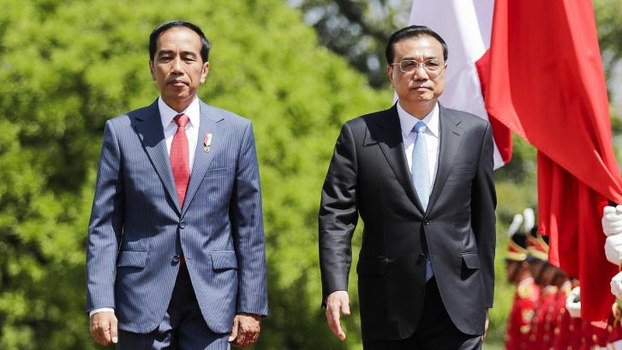




Calls are growing in Indonesia – the world’s largest Islamic majority country – for its government to speak out against China’s treatment of minority Muslims, amid reports that 1 million ethnic Uyghurs in Xinjiang province have been sent to re-education camps.
Parliamentary leaders, Islamic officials and rights activists on Thursday lent their voices to calls for increased pressure on China to address the allegations of human rights violations.
“The DPR (House of Representatives) calls on the government to send a strong message to the Chinese ambassador,” House Speaker Bambang Soesatyo told reporters. “We urge the government, in this case the Ministry of Foreign Affairs, to support the efforts of the United Nations in solving the issue and freeing Muslims there.”
Indonesia should take the lead in speaking out for the Uyghur minority in China, Deputy House Speaker Fadli Zon said.
“Even though Indonesia is the fourth-most populous country, with the largest number of Muslims in the world, our foreign policy under Mr. Jokowi has a very low profile,” Fadli said, referring to President Joko “Jokowi” Widodo.
China rejected allegations raised in August by a U.N. panel that the Uyghurs were being held in what resembled a “massive internment camp” in the Xinjiang region where Beijing has spent decades trying to suppress pro-independence sentiment.
On Monday, the Indonesian Foreign Ministry summoned the deputy Chinese ambassador in Jakarta to seek clarification on the issue. Foreign Ministry spokesman Arrmanatha Nasir said the ambassador stated that China was committed to respecting the Uyghurs.
“There’s willingness on the part of the Chinese embassy to expand communication with various civil society groups to inform them about the situation regarding the Uyghur community in China,” Arrmanatha told reporters.
Al Chaidar, a terrorism analyst at Malikussaleh University in Aceh province, said members of the banned Indonesian militant group Jamaah Ansharut Daulah (JAD), were promoting solidarity among their followers with Uyghur Muslims in China and Rohingya Muslims in Myanmar.
“Their members often call for jihad to those countries,” he told BenarNews, an RFA-affiliated online news service.
On Thursday, China’s embassy issued a statement on its website insisting that Uyghurs enjoyed freedom of religion.
The statement said authorities in Xinjiang had established “professional vocational training institutions” that provided education and training on China’s common language, legal system and vocational skills to lure Uyghurs from radicalism and extremism.
“Drawing on the anti-terrorism experience of the international community, China has taken a series of de-radicalization measures. In some places, certain residents there have a limited command of the country’s common language and a limited sense or knowledge of the law,” the statement said.
Muslim leader speaks
Anwar Abbas, the secretary general of the Indonesian Council of Ulema – the nation’s leading group of Muslim scholars – said Indonesia should leverage good relations with China to speak about the Uyghurs.
“The Indonesian government should ask China about the problems, are they religious or ethnic issues?” Abbas said.
Meanwhile, Vice President Jusuf Kalla said Indonesians should understand that China was having a difficult time treading between respecting human rights and fighting extremism.
“If there is religious discrimination, it’s a violation of human rights,” he told reporters.
“We should understand, there’s a problem of radicalism (among Uyghur Muslims). It has even spilled over to Indonesia,” he said, referring to the alleged involvement of some Uyghurs in Indonesian militant groups.
Previously, Kalla said China’s treatment of Uyghurs was a domestic problem and Indonesia should not interfere.
In September, Amnesty International said China engaged in systematic repression in the Xinjiang Uyghur Autonomous Region involving mass internment, intrusive surveillance, political indoctrination and forced cultural assimilation against Uyghurs, Kazakhs and other predominantly Muslim ethnic groups.
Reported by BenarNews, an RFA-affiliated online news service.